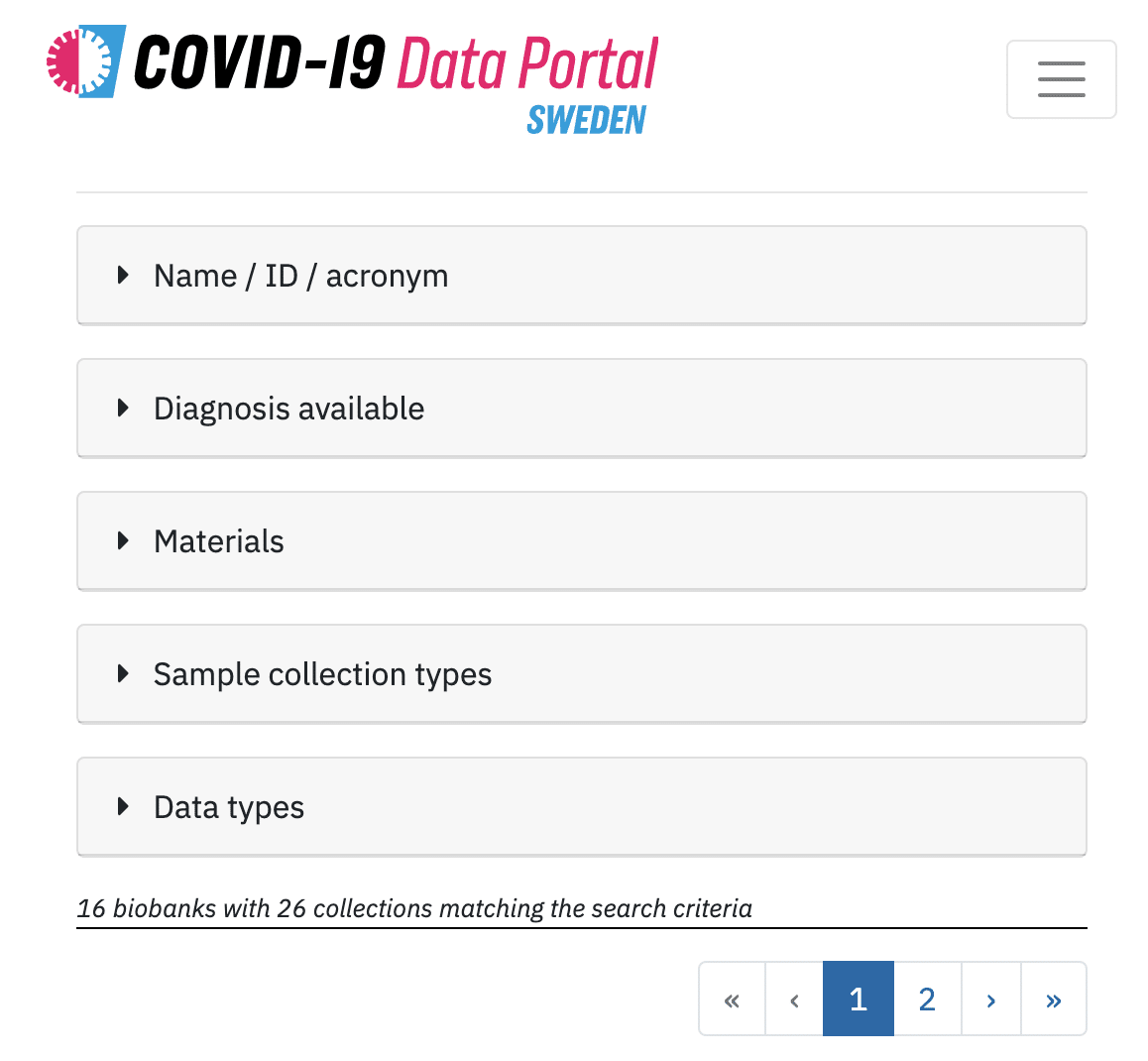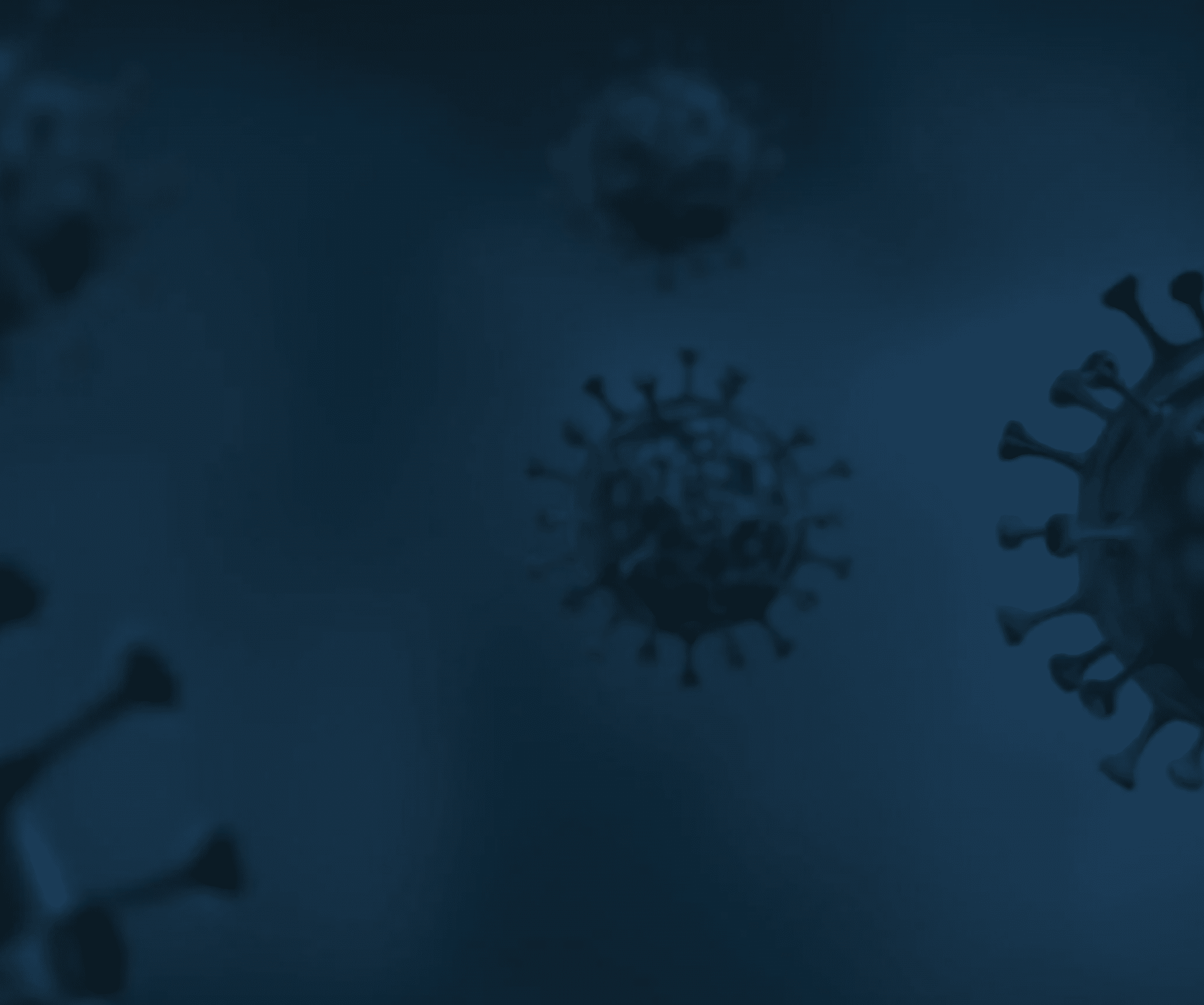Database on COVID-19 sample collections and biobanks launched
Sharing data and biobank samples is key to accelerate research on COVID-19, mitigate the effects of the virus, increase preparedness for future pandemics, and enable the development of COVID-19 vaccines and therapeutics. Therefore, SciLifeLab together with Biobank Sweden, now launches a national database on COVID-19 sample collections and biobanks, enabling scientists nationwide to find samples related to the virus.
The Sample Collection Database has been developed by the SciLifeLab Data Centre in collaboration with Biobank Sweden and the SciLifeLab and KAW National COVID-19 research program’s research area Biobanks for COVID-19. The development is supported by a recently announced funding initiative by the Swedish Research Council to Biobank Sweden, for coordination of the work on collecting samples related to COVID-19 by various biobanks in the country. The database is provided through the Swedish COVID-19 Data Portal, which is operated by the SciLifeLab Data Centre in collaboration with the Swedish Research Council.
By making sample collections accessible, the idea is to promote collaborations and enable scientists to find existing sample collections that are relevant for their COVID-19 research. Researchers can search for sample collections using keywords, biobank and collection names, available biological materials (e.g. nasal swabs, saliva, RNA and tissue), sample collection types and data types. For each collection, a short description is provided, as well as contact information for sample access requests.
A resource for both healthcare and academic research
Until now, there was no Swedish resource where researchers had the opportunity to search for biobank sample collections at a national level. At the time of launch, 26 collections in total are listed in the database. Additional collections will be added, and researchers are welcome to make submissions by contacting Biobank Sweden.
Magnus Nordenskjöld, Professor at Karolinska Institutet, is responsible for a collection in the database. Namely, the collection Congenital predisposition to develop severe COVID-19 infection, which is part of Stockholms Medicinska Biobank.
“Various observations suggest that there is a genetic predisposition to suffer from severe COVID-19. For instance, the majority of patients at intensive care units are male. We want to compare people with mild and severe disease progression using genetic studies to identify factors that protect against or predispose to severe COVID-19. The sample collection for this study has been made available in the database, so that other researchers also can make use of it”, says Magnus Nordenskjöld.

The database contains information on sample collections from both healthcare and research. Healthcare sample collections are gathered by healthcare units and primarily intended for diagnostics, treatment, and healthcare use, but access can be granted for research purposes if the scientist has suitable ethical approval.
Research sample collections are assembled for research purposes, as part of an ongoing research project. For these collections, access may also be granted for new or collaborating projects that fall under the existing or new ethical approval.
Accelerating research towards new scientific discoveries
Increased use of existing COVID-19 biobank sample collections is an important factor in accelerating research on the virus, both by contributing to research networking and collaborations, and by enabling new scientific research and development of therapeutics.
“We believe this new database will simplify finding samples for new COVID-19 studies,” says Johan Rung, Head of SciLifeLab Data Centre. “The collaboration with Biobank Sweden has been very positive and we are particularly happy to be able to provide a service that combines information from both healthcare and research sample collections in the same place. Increased availability of both data and samples is central to strengthening our pandemic preparedness in Sweden.”
Questions, comments, or suggestions regarding the database? Please contact the SciLifeLab Data Centre.
More information:
- Biobank Sverige news article: Provsamlingar publicerade i ”COVID-19 Data Portal SWEDEN” underlättar forskning om covid-19
- Swedish COVID-19 Data Portal
- SciLifeLab Data Centre
- SciLifeLab and KAW national COVID-19 research program: Biobanks for COVID-19 research area





